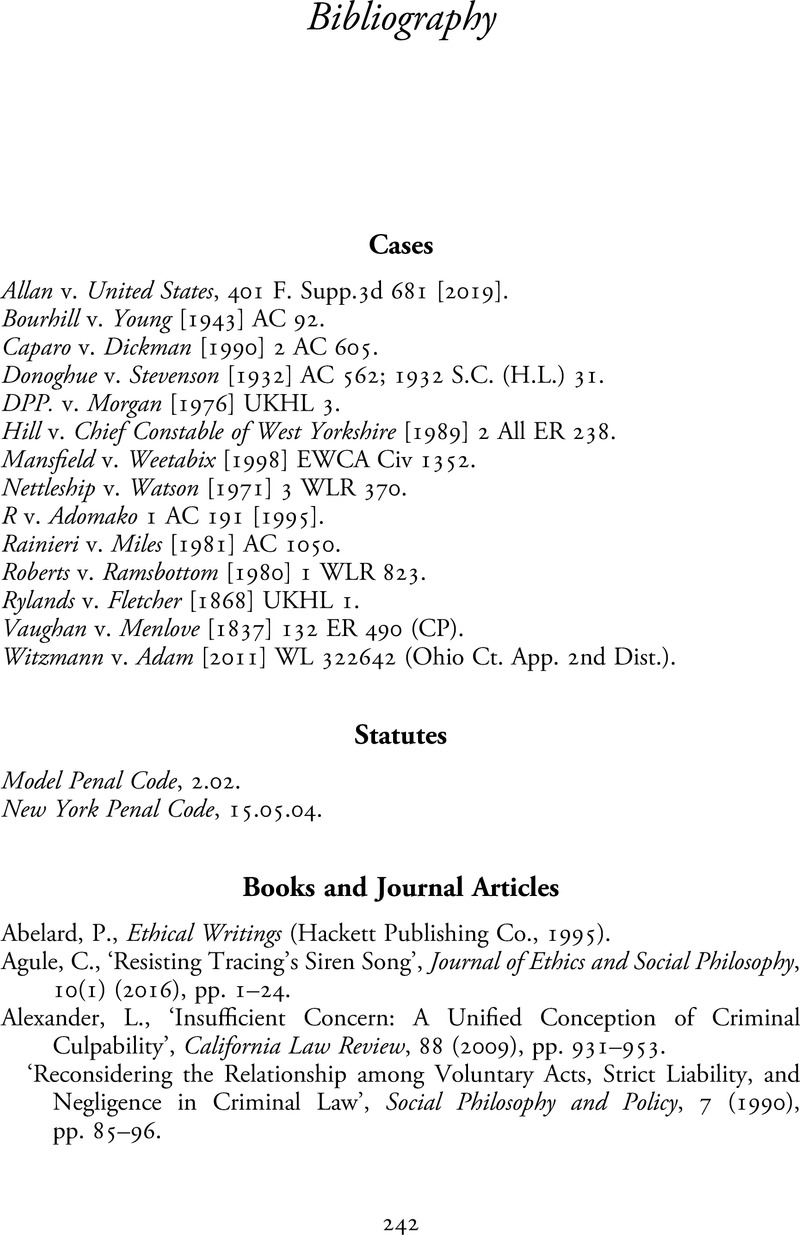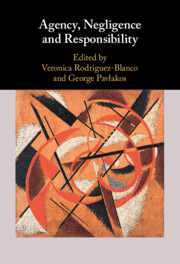Book contents
- Agency, Negligence and Responsibility
- Agency, Negligence and Responsibility
- Copyright page
- Dedication
- Contents
- Figures
- Contributors
- Acknowledgements
- Introduction
- Part I Will and Blameworthiness
- Part II Agency, Reasons and Inadvertence
- Part III The Significance of Action in Negligence
- Bibliography
- Index
- References
Bibliography
Published online by Cambridge University Press: 28 October 2021
- Agency, Negligence and Responsibility
- Agency, Negligence and Responsibility
- Copyright page
- Dedication
- Contents
- Figures
- Contributors
- Acknowledgements
- Introduction
- Part I Will and Blameworthiness
- Part II Agency, Reasons and Inadvertence
- Part III The Significance of Action in Negligence
- Bibliography
- Index
- References
Summary

- Type
- Chapter
- Information
- Agency, Negligence and Responsibility , pp. 242 - 256Publisher: Cambridge University PressPrint publication year: 2021

